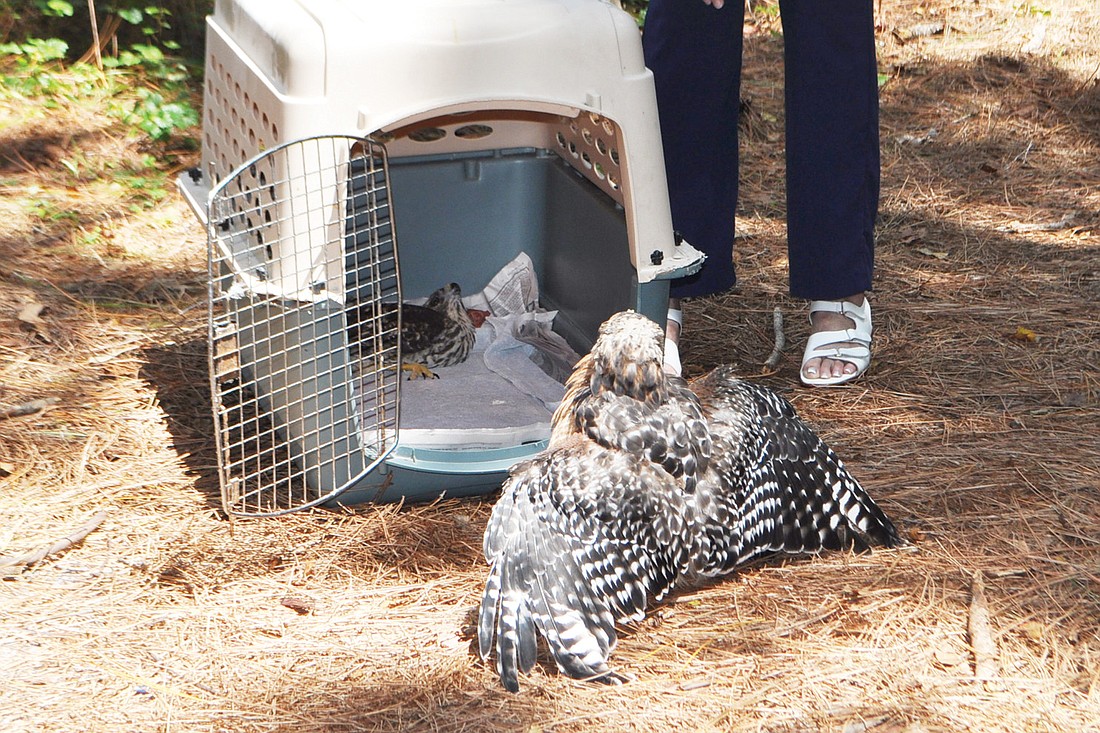- April 18, 2024
-
-
Loading

Loading

When Sparky the hawk came to Save Our Seabirds’ hospital last September, her legs and beak were damaged and her feathers were completely burned off. The 7-month-old bird had been severely injured when she flew into a methane burner at a local landfill, and her chances of survival were small.
But, one year later, with the help of the Save Our Seabirds staff, Sparky returned to the wild.
Sparky’s road to recovery began with a month of intensive care. She soon began showing signs of recovery, and by mid-November Sparky was well enough to be moved from the shelter’s hospital to the recovery wing. Sparky went through outdoor physical therapy to ensure that her wings functioned properly, and she slowly began hunting for prey — a necessity for any wild animal.
To keep Sparky wild, volunteers were only in direct contact with her for two months — the rest of the time she was in her pen with other rescued birds. As Sparky grew stronger, she befriended an older female red-shouldered hawk. With her new friend’s encouragement, Sparky began to not only hunt, but to compete with other hawks for prey.
When Sparky was ready to return to the wild, Executive Director Lee Fox and volunteer Bev Meadows released her Sept. 5 in Red Bug Slough Preserve. A younger male red-shouldered hawk was released with her. SOS staff hoped they would stick together for the first couple of days.
Even though the volunteers weren’t in direct contact with Sparky for more than a few months, it was hard for them to let her go.
“It’s bittersweet,” said Fox. “I feel sad but also proud of her for having the tenacity to stay the course, get better and get back to the wild.”
After she left her cage, Sparky stayed close by long enough for Fox and other staff members and volunteers to say their goodbyes before flying out of sight.
IF YOU GO
Save Our Seabirds is located at 1708 Ken Thompson Parkway and is open 10 a.m. to 5 p.m. every day. Save Our Seabirds is free and open to the public. Donations are accepted. If you or someone you know finds a bird in need, call SOS at 388-3010. To volunteer, contact Save Our Seabirds or go to saveourseabirds.org and download an application.